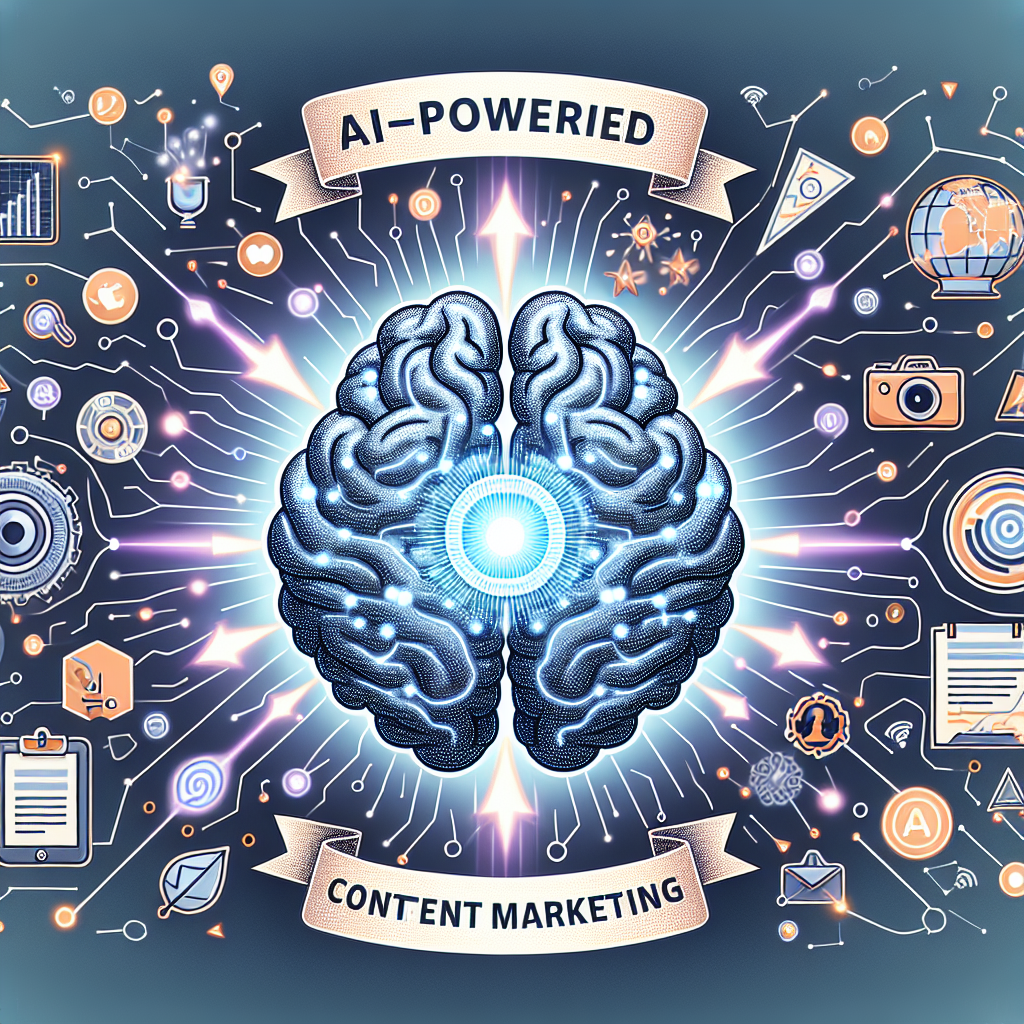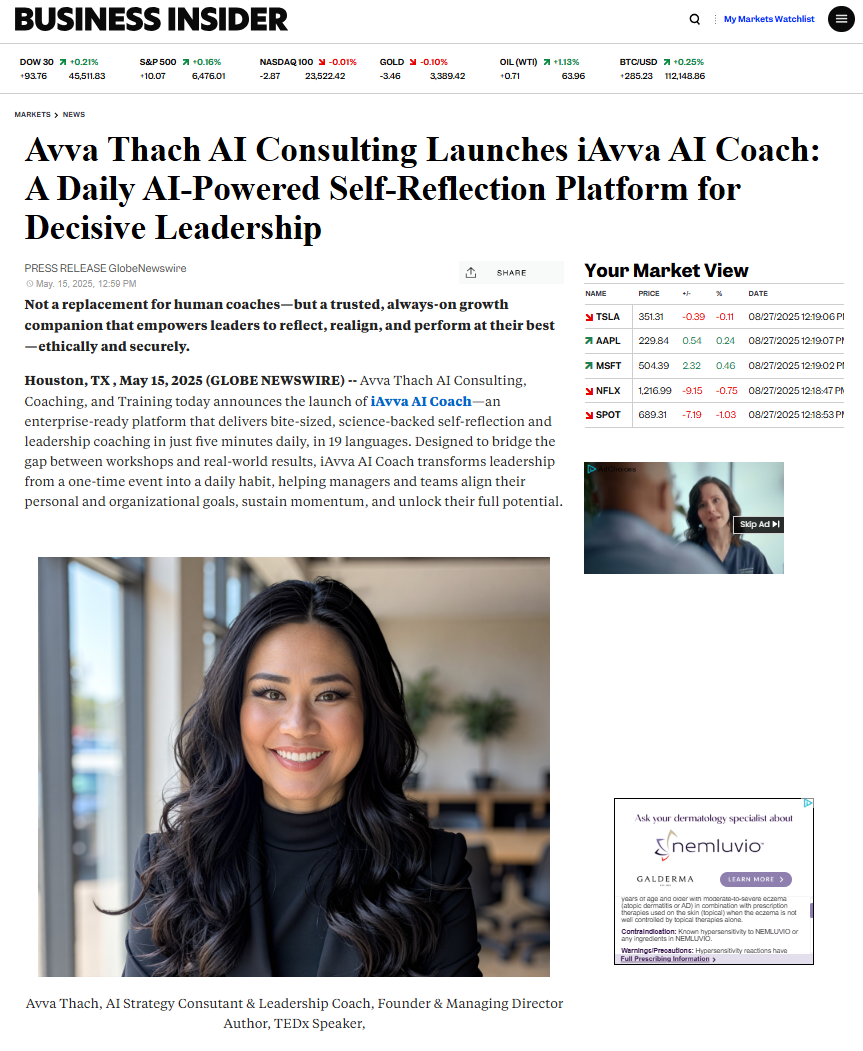10 Proven AI Strategies to Transform Your Business Operations
Navigating the digital transformation landscape can be a daunting task for small and midsize businesses. However, with the right AI strategies, businesses can streamline operations, enhance productivity, and drive growth. In this article, we will explore ten actionable AI strategies that will empower your business to thrive in the age of artificial intelligence.
Understanding the Importance of an AI Strategy
In today’s rapidly evolving digital landscape, not having a robust AI strategy is akin to trying to navigate a high-tech maze blindfolded. You might stumble upon success, but more often than not, you’ll find yourself bumping into walls. So, what exactly makes an AI strategy crucial for modern businesses?
The Backbone of Digital Transformation
AI strategies serve as the backbone of digital transformation. According to the International Data Corporation, “By 2025, at least 90% of new enterprise applications will embed AI.” This statistic underscores the pressing need for companies to integrate AI into their core operations effectively.
Unlocking Competitive Advantages
- Data-Driven Insights: Leveraging AI allows businesses to harness data analytics for more informed decision-making. By utilizing machine learning and other AI tools, companies can predict market trends and consumer behaviors with greater accuracy.
- Personalization Using AI: With tailored experiences becoming the norm, AI helps in personalizing customer interactions, boosting engagement and satisfaction.
- Sustainable Growth: Implementing a well-crafted AI strategy framework aids in aligning business goals with technology advancements, ensuring sustainable growth without overextending resources.
A Roadmap for Success and Innovation
An effective AI strategy is more than just a technical blueprint; it’s a roadmap that aligns technological innovation with business objectives. This strategic alignment allows one to scale AI solutions while managing risks—no small feat given the complexities involved in integrating technology across diverse functions.
“Organizations that prioritize strategic use of AI enjoy 40% higher productivity levels compared to those that don’t.” – McKinsey Global Institute
The key lies in developing an actionable AI implementation plan, which includes ethical considerations, ROI on investments, and governance models. Companies like Avva Thach are pioneering this space by offering customized consulting services that align with these essential elements.
If you’re still pondering why your business needs an enterprise AI strategy or how you can start developing it today, consider diving into our resources at iavva.ai, where you’ll find expert insights and proven methodologies designed for optimal success.
The journey might be complex, but with a clear roadmap and strategic support, navigating it could be as rewarding as finding extra fries at the bottom of your takeout bag! And isn’t that what every business strives for—unexpected yet delightful wins?
Integrating AI into Business Processes
Incorporating artificial intelligence strategies into your business processes is akin to adding a turbocharger to an already robust engine. But, as with any high-performance mechanism, it’s crucial to ensure each part is well-oiled and synchronized. So, how do you seamlessly integrate AI into your operations without spinning out of control?
1. Start with a Solid AI Implementation Plan
Every successful AI strategy begins with a thoughtful implementation plan. This involves understanding your current processes and identifying areas where AI can add value. According to PwC, AI could contribute up to .7 trillion to the global economy by 2030 (source). Start by evaluating which tasks are repetitive and time-consuming — these are prime candidates for AI intervention.
2. Align Your Business Goals with AI Solutions
The key to a successful AI business strategy lies in its alignment with organizational objectives. Are you looking to enhance customer experience, streamline operations, or drive innovation? Clearly defined goals will guide your choice of AI tools and technologies.
- Customer Experience: Companies like Sephora leverage AI-powered chatbots to provide personalized recommendations, enhancing customer satisfaction.
- Operational Efficiency: By automating routine back-office tasks, firms like UiPath have drastically reduced operational costs.
- Innovation: Businesses that integrate data-driven strategies can unearth insights leading to unexpected innovations.
3. Empower Your Workforce through Training
An AI transformation plan isn’t just about technology; it’s about people too. A McKinsey study suggests that 70% of transformations fail due to employee resistance (source). Providing comprehensive training programs ensures your workforce is equipped and ready for the digital shift.
“The greatest success comes from those who view change as an opportunity rather than a threat.” — Unknown
4. Monitor and Optimize Continuously
No plan is perfect from the get-go; hence the importance of continuous monitoring and optimization cannot be overstated. Use data analytics and AI integration to track performance metrics and iterate on strategies as needed. Remember, integrating AI into business processes means entering an ongoing cycle of improvement — much like how your favorite apps get regular updates.
The journey of embedding AI into your business may seem daunting at first glance. However, with deliberate planning, goal alignment, employee empowerment, and continuous optimization, you’ll soon find that this technological shift is not just manageable but also transformative for driving measurable growth in today’s competitive landscape.
Leveraging Machine Learning for Data-Driven Insights
In today’s digital age, businesses are awash in data—terabytes of it. But without the right tools, all that information is like a library without a catalog: potential riches locked away. This is where machine learning (ML) comes into play, acting as the key that unlocks valuable insights from your data.
Let’s dive into how you can leverage machine learning to transform raw data into actionable insights that drive growth and efficiency.
The Power of Predictive Analytics
Machine learning excels in predictive analytics by identifying patterns and trends within data sets that humans might miss. For example, retailers can predict purchasing behavior based on past transactions, enabling them to tailor marketing strategies with pinpoint accuracy.
- Example: An online retailer used ML algorithms to analyze customer shopping habits. The result? A 20% increase in conversion rates after implementing personalized product recommendations.
- Explore our services to see how AI strategies can enhance your business operations.
Real-Time Decision Making
Speed is of the essence in business today. Machine learning allows for real-time data analysis, giving businesses the ability to make informed decisions quickly. Whether it’s optimizing supply chains or responding to market changes, ML provides the agility needed in fast-paced environments.
“Data is not just about numbers; it’s about understanding customer behavior and making informed decisions.” – Forbes
The Value of Automation
Automation through machine learning reduces manual effort and error rates, freeing up human resources for strategic tasks. For instance, ML can automate mundane tasks like data entry or routine analysis, allowing your team to focus on innovation and growth strategies.
- Fact: According to McKinsey, automation could raise productivity growth globally by 0.8% to 1.4% annually.
- Listen to our podcast on AI-driven decision-making for more insights.
Tackling Data Complexity with Ease
The complexity of modern datasets—often unstructured and vast—requires more than traditional analytics tools for meaningful interpretation. Machine learning models excel at tackling these challenges by sifting through complex datasets swiftly and accurately.
- Stat: Gartner predicts that by 2024, organizations using ML-enabled data discovery will achieve twice the business value from their analytics investments compared to peers who don’t employ such tools.
- Read more on our blog about integrating AI into your business strategy.
If you’re looking to harness the power of machine learning for data-driven insights, remember it’s not just about jumping on the AI bandwagon—it’s about driving strategic value from it. After all, an insightful report is only as good as its implementation!
Developing a Robust AI Implementation Plan
Creating an effective AI implementation plan is akin to constructing a sturdy bridge—one that connects your strategic goals with technology solutions, ensuring safe passage to innovation and growth. Here’s how you can develop an AI strategy that stands strong amidst business challenges.
1. Set Clear Objectives
The first step in any successful AI strategy is setting clear, actionable objectives. Consider what business problems the AI will address and align these goals with your overall enterprise strategy. Remember, embarking on an AI journey without clear objectives is like setting sail without a compass—you’re bound to get lost.
2. Assess Your Data Infrastructure
No data, no party! Evaluate your existing data infrastructure to ensure it’s capable of supporting AI initiatives. Data is the backbone of any AI system, so it’s crucial to have a robust framework for storage, management, and analysis.
3. Choose the Right Tools and Technologies
Selecting the right tools is essential for an effective AI implementation plan. Consider cloud-based solutions for scalability and flexibility or specific machine learning platforms that align with your industry’s requirements.
4. Build a Cross-Functional Team
- Data Scientists: The architects of your AI models.
- IT Experts: Guardians of technology integration.
- Business Leaders: Visionaries aligning tech with strategy.
- User Experience Designers: Ensuring AI aligns with human needs.
“AI doesn’t replace jobs; it augments human potential.” — Fei-Fei Li, Co-Director of the Stanford Human-Centered AI Institute
5. Establish Governance and Ethical Guidelines
Avoid creating an ethical Frankenstein by establishing governance frameworks early on. Define policies around data privacy, algorithmic fairness, and accountability—because even robots need rules!
6. Pilot Projects Before Full-Scale Deployment
Pilot projects allow you to test theories in real-world scenarios before implementing them on a larger scale. This step helps identify potential pitfalls and refine strategies for better outcomes—a low-risk way to avoid turning your entire operation into a sandbox experiment!
The Path Forward: Continuous Evaluation and Adaptation
An effective AI implementation plan isn’t static; it evolves over time. Regularly assess its impact and adapt as necessary to ensure it continues driving value and innovation within your organization.
Contact us today to learn more about creating a tailored AI strategy that transforms your business operations.
Scaling AI Solutions Across the Enterprise
Scaling AI solutions across an enterprise isn’t just about flipping a switch and watching the magic happen. It’s about crafting a meticulous AI implementation plan that smoothly transitions from small-scale experiments to full-blown, organization-wide adoption. Think of it as moving from your backyard laboratory to a NASA-like setup without losing any beakers in the process!
The Building Blocks of Scalable AI
To scale effectively, enterprises must first lay down the foundational blocks of their AI strategy framework. Here are some critical steps:
- Data-Driven Strategy: Your AI solutions are only as good as the data they consume. Ensuring high-quality, clean, and ethically sourced data is paramount.
- Flexible Infrastructure: Invest in robust, cloud-based AI solutions that offer scalability without requiring significant overhauls.
- Cross-Functional Teams: Foster collaboration across departments. This isn’t just an IT endeavor; it’s a company-wide revolution!
- Ethical Considerations: Implementing AI responsibly is not just desirable but necessary. Establish clear guidelines and governance models to ensure ethical use.
Cultivating an AI Culture
An essential part of scaling is cultivating a culture that embraces AI. Employees need to see AI as their ally rather than their future overlord plotting world domination from the server room.
“Organizations with a strong culture around innovation and technology adoption tend to outperform their peers.” — Forbes Tech Council
The Role of Leadership in Scaling AI
The strategic benefits of artificial intelligence can only be realized when leadership takes charge with clarity and vision. Leaders need to guide the transition by aligning business goals with AI capabilities, ensuring everyone paddles in the same direction on this digital transformation canoe ride.
- AI-Driven Decision Making: Equip leaders with tools that provide insights for strategic decision-making.
- Sustainable AI Strategies: Aim for long-term gains by embedding sustainability into your scaling approach.
- Continuous Learning & Development: Regular training sessions are crucial for keeping pace with evolving technologies and trends.
If you’re ready to embark on this exhilarating journey of scaling your enterprise’s AI solutions, remember: It’s not rocket science—well, unless you actually work at NASA! For more insights on implementing successful strategies, explore our detailed resources at iavva.ai.
Personalizing Customer Experiences Using AI
In today’s digital age, personalization isn’t just a nice-to-have; it’s a must-have. Remember the days when your local barista knew your “usual” even before you reached the counter? Well, AI is bringing that level of personalization to the digital world, minus the caffeine jitters.
The Power of AI-Driven Personalization
AI can analyze vast amounts of data at lightning speed, uncovering intricate patterns and preferences that human analysts might miss. According to a report by McKinsey, businesses that leverage data-driven decision-making are 23 times more likely to acquire customers and 19 times more likely to be profitable. By using AI for personalizing customer experiences, companies not only enhance user satisfaction but also boost their bottom line.
“Businesses that use data-driven decision-making are 23 times more likely to acquire customers and 19 times more profitable.”
How AI Personalization Works
- Data Collection: Gather customer data from various touchpoints like social media, purchase history, and online interactions.
- Analysis: Use machine learning algorithms to analyze customer behavior and preferences.
- Custom Recommendations: Deliver tailored content or product recommendations based on individual preferences.
- Feedback Loop: Continuously refine personalization strategies based on customer feedback and engagement metrics.
Examples of Effective AI Personalization in Action
Take Netflix’s recommendation engine as an example. By leveraging advanced algorithms, Netflix not only suggests what you might like next but also curates entire playlists that feel like they were made just for you!
An excellent internal resource for further exploring these techniques is our blog page at
iavva.ai/blogpage, which dives deeper into actionable AI strategies.
The key takeaway here? If you’re not personalizing your customer experience with AI yet, you’re leaving money—and smiles—on the table. As Steve Jobs once said with a twist for today’s context, “Innovation distinguishes between a leader and a follower”; make sure your business is leading with personalized experiences powered by AI.
Enhancing Strategic Planning with Cloud-Based AI Tools
In today’s rapidly evolving business landscape, strategic planning is more than just a roadmap—it’s a dynamic process that can make or break your competitive edge. Enter cloud-based AI tools, the next frontier in optimizing strategic planning. Leveraging these cutting-edge technologies not only enhances decision-making capabilities but also ensures that your strategies are agile, scalable, and future-proof.
The Power of Cloud-Based AI in Strategic Planning
- Real-Time Data Analysis: Cloud-based AI platforms offer real-time data processing, allowing businesses to analyze trends as they happen. This capability is crucial for making informed decisions quickly and effectively.
- Scalability: One of the significant advantages of cloud solutions is scalability. As your business grows, your AI capabilities can expand seamlessly without the need for costly infrastructure investments.
- Collaboration Boost: With cloud-based tools, teams across different locations can collaborate effortlessly. This feature ensures that everyone is on the same page, leading to more cohesive and strategic planning sessions.
A study by Gartner predicts that global end-user spending on public cloud services will grow 23% in 2021 alone. As businesses increasingly move towards digital-first strategies, the integration of AI with cloud technology becomes indispensable.
An Example: The Retail Industry
Consider the retail industry—a sector notorious for its cutthroat competition and tight margins. By integrating cloud-based AI tools into their strategic planning processes, retailers can enhance inventory management through predictive analytics, streamline supply chain operations, and personalize customer experiences effectively. Brands like Amazon have mastered this art by utilizing AI-driven insights to predict consumer behavior—turning data into dollars with remarkable precision.
“The future belongs to those who harness data insights driven by advanced technologies.”
If you’re intrigued by how Avva Thach Consulting can help you integrate AI into your business strategy, explore our comprehensive services at Avva Thach Services. Make sure you subscribe to our blog for more insights on leveraging technology for growth.
As businesses navigate the complexities of digital transformation and AI integration, it’s essential to adopt tools that not only align with organizational goals but also foster innovation and adaptability. Cloud-based AI tools are no longer just a nice-to-have—they’re a strategic imperative for any forward-thinking enterprise.
Using AI for Competitive Advantage and Innovation
In the rapidly evolving digital landscape, staying ahead requires more than just a good idea; it involves harnessing the power of artificial intelligence (AI) to foster innovation and maintain a competitive edge. As businesses across various sectors delve into AI strategy, the focus is on leveraging AI’s transformative potential to outpace competitors and pioneer industry advancements.
Embrace Data-Driven Decisions
The competitive advantage of AI lies in its ability to process vast amounts of data with lightning speed. Companies that implement a robust AI business strategy can quickly interpret market trends, customer preferences, and operational inefficiencies. According to a study by McKinsey, businesses that integrate big data and analytics into their operations see an average increase in productivity by up to 6% over competitors who do not (source).
Innovate with AI Tools
AI-driven decision-making can be your secret weapon for innovation. It allows businesses to explore uncharted territories through machine learning models that predict outcomes and suggest optimal strategies. Consider Netflix’s recommendation engine—powered by AI algorithms—which has reportedly saved the company over billion annually by reducing churn rates (source).
- Personalization: Using AI, companies like Spotify offer highly personalized user experiences, enhancing customer satisfaction and loyalty.
- Predictive Analysis: Firms leverage predictive analytics for demand forecasting, ensuring they meet customer needs efficiently.
Cultivate a Culture of Continuous Learning
A smart AI implementation plan also involves fostering a workplace culture that values continuous learning and adaptation. According to PwC, organizations that prioritize ongoing employee training as part of their digital transformation efforts are significantly more likely to achieve meaningful results (source). So, consider setting up workshops or webinars on ethical considerations in AI strategies or agile approaches to AI deployment.
“AI is not about man vs machine—it’s about augmenting human capability.” — David Kenny, IBM Watson
If you’re ready to seize the opportunities presented by strategic use of AI, visit our resources at Avva Thach Consulting for insights on integrating these tools effectively into your business framework. Our tailored solutions can transform how you approach operations, innovation, and competition in today’s market.
P.S.: Remember, while humans invented AI, it’s here to make us look smarter—not the other way around!
Sustainable and Ethical Considerations in Implementing AI
In the quest to integrate AI strategies into business operations, it’s vital to address the sustainable and ethical dimensions of AI implementation. After all, what’s the point of future-proofing your business if it comes at the expense of our planet or our moral compass? Here’s how you can embrace AI responsibly while keeping both your conscience and your ROI intact.
Embracing Sustainable AI Practices
- Energy Efficiency: The use of cloud-based AI solutions can significantly reduce energy consumption by optimizing server loads. According to a report by McKinsey, cloud data centers are 20% more efficient than traditional enterprise data centers.
- Recyclable Hardware: Opt for hardware providers who prioritize recyclability and energy-efficient designs. This not only reduces e-waste but also aligns with the principles of a circular economy.
Upholding Ethical Standards in AI Implementation
The ethical landscape of AI is as complex as a robot trying to understand human emotions—which we’re still working on! Consider these guidelines to ensure your AI initiatives are ethically sound:
- Transparency: It’s essential that algorithms operate transparently to build trust with stakeholders. As noted by the Harvard Business Review, 88% of consumers believe that companies should be transparent about their use of AI.
- Bias Mitigation: Regular audits for bias in AI systems are crucial. Use diverse data sets and involve cross-functional teams to identify and address potential biases.
- User Privacy: Prioritize user data protection through robust encryption methods and secure data governance models. GDPR compliance should be a baseline, not an aspiration.
The integration of sustainable and ethical practices in your AI strategy framework isn’t just good for humanity—it’s good for business. Companies that incorporate ethical considerations into their digital strategies see better long-term outcomes across brand reputation, customer loyalty, and competitive advantage.
“Responsible AI doesn’t just do things right—it does the right things.” – Anonymous Tech Enthusiast
If you’re looking to dive deeper into how these strategies can be tailored for your specific needs, feel free to check out our comprehensive resources on sustainable practices at Avva Thach Consulting Services.
The Role of Leadership in Driving Successful AI Adoption
In the dynamic world of artificial intelligence strategy, leadership plays a pivotal role. When it comes to integrating AI into business operations, leaders are the compass that directs the ship through uncharted waters. But what does this journey entail, and how can leaders ensure a smooth sail?
1. Visionary Leadership: Seeing Beyond the Horizon
Leaders must possess a visionary mindset to foresee how AI can redefine their industry. According to Deloitte’s 2022 Global AI in Business Survey, 83% of companies believe that having an AI strategy aligned with business goals is crucial for future-proofing their operations.[1] A leader’s ability to envision and articulate this future can inspire teams to embrace digital transformation.
2. Cultivating a Culture of Innovation
A successful AI business strategy often hinges on nurturing a culture that champions innovation. Leaders need to encourage experimentation and learning from failures as much as from successes. After all, even Thomas Edison once said:
“I have not failed. I’ve just found 10,000 ways that won’t work.”
This mindset fosters an environment where teams feel safe to innovate and explore the potential of AI tools for strategic planning.
3. Empowerment Through Education
The knowledge gap is one of the biggest hurdles in developing an AI strategy. Leaders who invest in education and training empower their workforce to effectively leverage AI technologies. McKinsey reports that companies with high-performing teams invest five times more in training than their peers.[2]
4. Ethical Stewardship: Navigating Moral Compasses
The ethical considerations in AI strategies cannot be overstated—questions about privacy, bias, and accountability are at the forefront. Leaders must steer these discussions with empathy and integrity, ensuring responsible AI governance models. As the saying goes, “With great power comes great responsibility.”
Key Takeaways for Leaders:
- Create a clear vision: Align your team’s goals with overarching AI transformation plans.
- Nurture innovation: Encourage risk-taking and learning within safe boundaries.
- Prioritize education: Invest in upskilling your workforce for future challenges.
- Champion ethics: Lead initiatives that prioritize ethical considerations in every decision.
The role of leadership is not just about steering an organization but also about setting a course towards sustainable growth through strategic use of AI.
Want to learn more about leadership’s impact on AI adoption? Explore our resources on AI leadership strategies.
This guide outlines key strategies that will help you effectively incorporate artificial intelligence into your business operations. By leveraging these proven tactics, your organization can position itself at the forefront of digital transformation, ultimately achieving measurable growth and success.










Leave a Reply